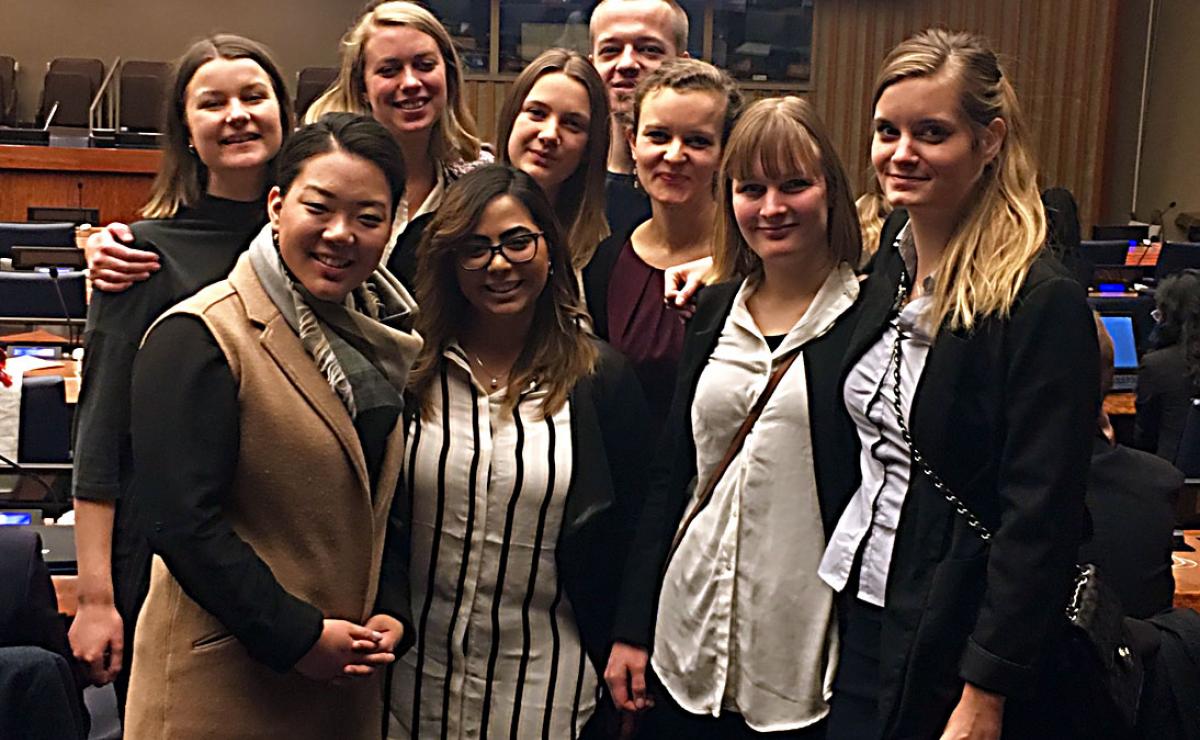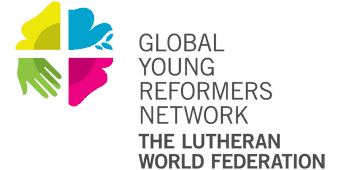Our chance to shape the future of our planet

LWF Youth Secretary, Caroline Bader, and LWF Council member/Director ELCA World Hunger, Mikka McCracken, examine the ways in which LWF youth can shape the Sustainable Development Goals
The Sustainable Development Goals – also known as 2030 Agenda - is a set of 17 aspirational goals, adopted by the members of the United Nations. Throughout the next 15 years, these goals will shape global learning, working and networking. Faith-based groups are part of this, as are young people.
As church actors of different generations, we have been committed to poverty eradication, peace-building, education, health care, social work, development work, gender justice, climate action and much more for many years. All of these can also be found in the Sustainable Development Goals. The content of these goals is not new to churches - but they are now seen as universal and to be implemented by all people everywhere.
Representatives of LWF Youth came together at the United Nations’ Economic and Social Council (ECOSOC) Youth Forum 2017, held at UN headquarters in New York, with the theme, “The role of youth in poverty eradication and promoting prosperity in a changing world” to discuss the role of young people in implementing the SDGs.
The forum gathered a multitude of political delegations and ministers, as well as representatives from public institutions, the private sector, and non-governmental, faith-based and youth organizations.
It was impressive to witness people from these sectors sitting next to each other on panel discussions and in the audience. It gave all participants the chance to meet and talk to policy-makers and other youth delegates and representatives.
The LWF joined other faith-based youth organizations - Changemaker Norway, DanChurchAid youth, and the global YMCA. We came to the forum with many questions: What is at stake? What is the role of young people in 2030 Agenda? What is the role of the global Lutheran communion?
Unemployment, climate change and rising poverty
The forum firstly analyzed the specific challenges of the young generation. Today we witness the largest youth population ever recorded - more than 1.8 billion people below 30 are alive today. UN Secretary General Guterres said in a video message to the conference, “This young generation is challenged by massive unemployment, the reality of climate change and rising poverty. But you are also active entrepreneurs and inspire change. You are not too young to vote, to participate, to be part of civic life,” he concluded.
Outgoing United Nations Secretary General's youth envoy, Ahmad Alhendawi, said the youth of today would be poorer than their parents. It was therefore crucial to work with and not only for youth. “States that fail the youth, are often failed states,” he said. He encouraged everyone to work for dialogue between the generations, “You are never too young to run and you are never too old to learn from a young person.”
Put the skills of youth to good use
Founder and Chief Executive Officer of SheSays and UN Young Leader for the Sustainable Development Goals, Trisha Shetty, underlined the need for young and old alike to work together. In her opening statement, Shetty said, “Inter-generational justice is needed. If you limit access of young people to resources, options and policy making, you are actively leading them to a lesser life.”
Youth participation serves as a priority of all 17 global goals. The youth forum concept note says, “Youth-specific and youth-related targets have been secured in several of the SDGs, and youth development issues are cross-cutting and run through the new agenda, including the opening declaration, which emphasizes youth issues in various paragraphs.”
Still, concrete action to support youth development is pending. It requires substantial financial support and efforts to promote youth entrepreneurship. This is needed in all countries, developing and developed alike.
Young people are today’s change-makers and leaders. This generation can help implement and monitor the global goals. In order to implement the goals, young people should contribute their strongest skills, these being their ability to learn quickly, their technological knowledge, mobility, readiness to take risks, flexibility, and communication and information-sharing skills.
This meeting also showed us that we shouldn’t be afraid to enter new partnerships and collaboration, for example with other NGOs, secular organizations, and governments and private sector.
All 193 UN member states have committed to implement the SDGs within their own countries. Every country will report back on their progress through a voluntary national review process.
Non-governmental organizations can critically contribute to this process. This means we need to find structures to help monitor the goals at national level, as church and as youth. As young people, you could start by educating yourselves. What are your priorities of your country among the 17 goals? What did your government promise? Are your governments involving youth and church projects in their national efforts?
We are convinced that by God's liberating grace, the gifts of salvation, human beings and creation are not for sale.
The slogan of the SDGS is “leave no one behind”. The forum encouraged us to put young people at the front and center of efforts to implement and monitor these goals for the sake of a sustainable planet.
Will you, too?
By Caroline Bader, LWF Youth Secretary and Mikka McCracken, LWF Council member/ Director ELCA World Hunger
